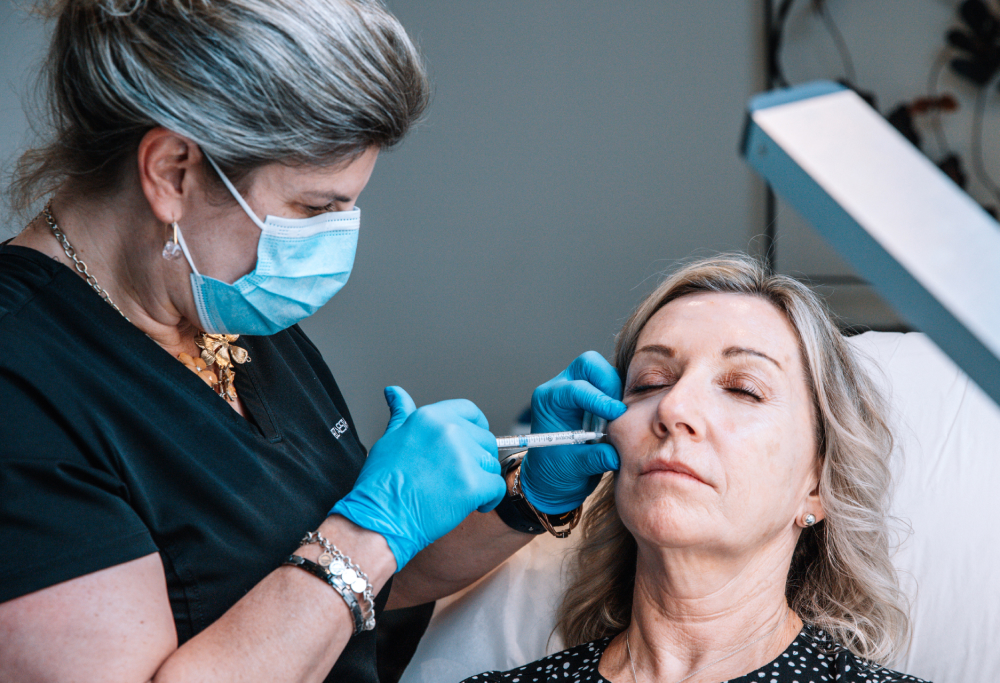blog
Skin Microbiome 101: How to Take Care of the Good Microorganisms on Your Skin

Aug 31 2022
Reading Time: 4 Minutes
Author: Patricia Pezzano
Microbes.
You can’t see them but they’re in you and on you. You walk around, unwittingly carrying over 100 trillion of them—or about 1.5 kg of your total body weight—all by yourself.
Your skin alone is home to approximately 1.5 trillion bacteria. But don’t be afraid—not all of them want to harm you. In fact, taking care of your skin microbiome or skin flora is very important for your health.
They work in tandem with your immune system to protect you—their host—against pathogens that can make you sick or cause your skin to break out. They fight off infections, control inflammation, and heal wounds.
Keep reading to discover more about your skin microbiome and the ten ways you protect it to maintain a healthy complexion.
What Affects Your Skin Microbiome?
Do you know that your skin microbiome is unique to you? It is determined by your DNA. Then, you gathered them slowly from your mother’s vaginal canal when you were born, then through breastmilk, human interaction, and your environment. They become stable as early as the first three years of your life.
However, there are some things that can disrupt your microbiome, which is also known as skin dysbiosis:
Puberty
Hormonal changes associated with puberty cause the body to release sebum—and some skin bacteria love it. This is the reason why many teenagers have acne.
Oral Antibiotics
Antibiotics are beneficial if they are targeted and if we take them at the appropriate dose and duration. Otherwise, they are known to kill good skin bacteria.

You’re Overdoing Your Skincare
Probiotic skincare may be popular, but excessive amounts of one type of organism can be harmful to your skin. No matter how “good” a certain kind of bacteria is, too much of one type of bacteria is still bad for your skin’s microbiome.
Also, applying too many skincare products can throw your microbiome out of balance. Perhaps, this is because active ingredients in those products can alter the skin’s behaviour—and, therefore, the microbes that live on it.
Your Environment
Being outdoors is good for your health and, as it turns out, your skin too. Studies show that exposing yourself to greenery improves the diversity of your microbiome. Just breathing the air when you’re surrounded by nature transfers the biomes from the outside into you!
Unfortunately, that’s hard to do if you’re living in an urban environment with no access to green spaces. In that scenario, it’s the microbes from pollution that affect your skin microbiome.
10 Things You Can Do to Protect Your Skin Microbiome
You may have inadvertently done some damage to your skin microbiome. The good news is that there are things you can do to fix it and support its function:
Eat a Balanced Diet
What you put inside your body influences your skin in many ways. So, eat a lot of plant-based food, probiotics, good fats, proteins, carbohydrates, and fruits. Keep extra sugar and processed food to a minimum, or better yet, take them out of your diet entirely.
Don’t Over-Sanitize
Do you take long, hot showers and wash your hands regularly with antibacterial soap? Many people tend to become almost obsessed with cleaning their skin to the point where they are upsetting the balance of the microbiome. Oversanitizing can lead to dry, cracked, discoloured, and flaky skin.
Work up a Sweat a Few Times a Week
Exercising is good for your health in general, including your skin. When you exercise, you increase the blood flow to your skin, keeping it oxygenated and nourished with vital nutrients.
Quit Smoking
We know smoking is bad for our health in many ways. It also drastically affects our skin too. Smoking disturbs your skin microbiome, causing inflammation, premature aging, and other skin concerns.
Avoid Stress
Chronic stress reduces the diversity of microbes on the skin. This reduction not only introduces skin problems, it also exacerbates existing ones such as acne, psoriasis, eczema, and even hair loss.
Use the Right Products for Your Skin Type
Our skin microbiome prefers alkalinity of about pH5. But some skin products contain sulfates and other harsh chemicals with a pH of up to 10. And that is the alkalinity where opportunistic skin bacteria thrive. Make sure to check the pH level of the products you are buying so as not to damage the balance of your skin microbiome.

Moisturize
Using the right moisturizer can give your skin barrier a boost. Keep in mind to look for products with natural ingredients. Moisturizers with prebiotics will feed your skin’s natural bacteria and keep it balanced.
Support Your Gut Health
Do you know that skin issues are influenced by the overall health of your gut? Digestive disorders can manifest on your skin in the form of rosacea and eczema. When you have a gut disorder, your skin is almost always affected as well.
Treat Existing Medical Conditions
If you have an unmanaged health issue like diabetes, ulcerative colitis, Crohn’s disease, and other inflammatory bowel diseases, get them treated as soon as possible. These medical conditions are usually accompanied by skin problems.
Go On Nature Trips!
Going on nature trips can give your skin microbiome and your physical and mental health a boost.
Find The Right Balance and In-Depth Knowledge Through APT Courses
Most people aren’t aware that the foundation of great-looking skin is a well-balanced skin microbiome!
Part of our role as skincare specialists is to assess patients so we can educate them about their skin, confirm if they’re a good candidate for the treatment they seek, and advise them on what they can do to prolong the results.
The fundamentals of proper skin assessment are included in APT Injection Training’s courses for Botox and dermal fillers. So if you want comprehensive training for skin assessment related to injectables, get in touch with us or visit our website.
Tips to be a
Successful Injector!
Free E-Book download
 Student Log in
Student Log in
 1267 Cornwall Rd, Unit 300, Oakville, Ontario L6J 7T5
1267 Cornwall Rd, Unit 300, Oakville, Ontario L6J 7T5

 (289) 271-5718
(289) 271-5718




































